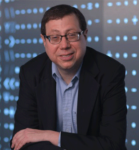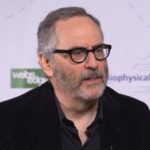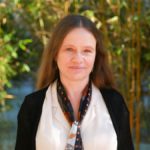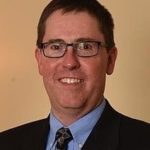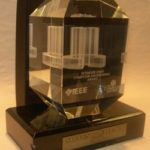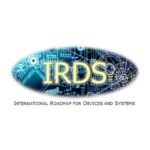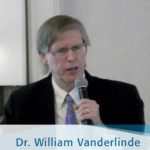Alan Edelman, professor of applied mathematics at MIT, has been selected to receive the 2019 IEEE Sidney Fernbach Award. Edelman was cited for “for outstanding breakthroughs in high-performance computing, linear algebra, and computational science and for contributions to the Julia programming language. The award will be presented to Edelman at the SC19 awards plenary session on November 19 in Denver.
Julia Computing Chief Scientist Alan Edelman Wins Prestigious IEEE Sidney Fernbach Award
Call for Papers: Hot Interconnects Conference in Silicon Valley
The Hot Interconnects conference has issued its Call for Papers. The event takes place August 14-16 in Silicon Valley. “Hot Interconnects is the premier international forum for researchers and developers of state-of-the-art hardware and software architectures and implementations for interconnection networks of all scales, ranging from multi-core on-chip interconnects to those within systems, clusters, datacenters and Clouds. This yearly conference is attended by leaders in industry and academia. The atmosphere provides for a wealth of opportunities to interact with individuals at the forefront of this field.”
Dr. David E. Shaw to Receive 2018 Seymour Cray Computer Engineering Award
Today IEEE announced that Dr. David E. Shaw, chief scientist of D. E. Shaw Research and a senior research fellow at the Center for Computational Biology and Bioinformatics at Columbia University, has been named recipient of the 2018 IEEE Computer Society Seymour Cray Computer Engineering Award. “Dr. Shaw is being recognized “for the design of special-purpose supercomputers for biomolecular simulations.”
Professor Linda Petzold to Receive Sidney Fernbach Award at SC18
Professor Linda Petzold from UC Santa Barbara has been selected to receive the 2018 IEEE Computer Society Sidney Fernbach Award. “Best known for her pioneering work on the numerical solution of differential-algebraic equations (DAEs), Petzold’s research focuses on modeling, simulation and analysis of multiscale systems in materials, biology and medicine. Many physical systems are naturally described as systems of DAEs.”
Why SC18 is a Key Event for Tackling our Planet’s Toughest Challenges
In this special guest feature, SC18 Conference Chair Ralph A. McEldowney writes that HPC is now more crucial than ever to empower science for the benefit of humanity. “From hurricane and earthquake predictions to solving global hunger challenges – the importance of HPC has never been greater. Join us in Dallas, Texas for the 30th Anniversary of the SC Conference Series, Nov 11-16, 2018, and be inspired to make a difference.”
Seeking Nominations for the IEEE Awards at SC18
Nominations are solicited for the Seymour Cray, Sidney Fernbach & Ken Kennedy Awards presented at SC18 in Dallas. Nominations are due July 1, 2018.
Researchers in Machine Learning Awarded George Michael Memorial HPC Fellowships
Today ACM and IEEE announced that Shaden Smith of the University of Minnesota and Yang You of the University of California, Berkeley are the recipients of the 2017 ACM/IEEE-CS George Michael Memorial HPC Fellowships. Smith is being recognized for his work on efficient and parallel large-scale sparse tensor factorization for machine learning applications. You is being recognized for his work on designing accurate, fast, and scalable machine learning algorithms on distributed systems.
IEEE Approves Standards Project for Quantum Computing Definitions
“While Quantum Computing is poised for significant growth and advancement, the emergent industry is currently fragmented and lacks a common communications framework,” said Whurley (William Hurley), chair, IEEE Quantum Computing Working Group. “IEEE P7130 marks an important milestone in the development of Quantum Computing by building consensus on a nomenclature that will bring the benefits of standardization, reduce confusion, and foster a more broadly accepted understanding for all stakeholders involved in advancing technology and solutions in the space.”
IEEE Looks Beyond Moore’s Law with IRDS Technology Roadmap
“As a team, we are laying the foundation to identify challenges and recommendations on possible solutions to the industry’s current limitations defined by Moore’s Law. With the launch of the nine white papers on our new website, the IRDS roadmap sets the path for the industry benefiting from all fresh levels of processing power, energy efficiency, and technologies yet to be discovered.”
Dr. William Vanderlinde on Computing Beyond Moore’s Law
In this video from the IEEE Rebooting Computing Workshop, Dr. William Vanderlinde, Chief Scientist at Intelligence Advanced Research Projects Activity (IARPA), explains how we have already entered the era at the end of Moore’s law, including the end of Dennard Scaling. Dr. Vanderlinde also reviews the National Strategic Computing Initiative (NSCI) and IARPA’s focus in relation to the NSCI’s objectives.

